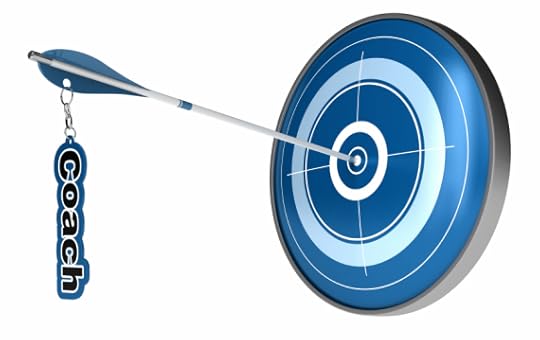Dave Anderson's Blog, page 12
November 22, 2016
Using Positivity To Get Things Done
In 2015, the first female graduates of the Army’s Ranger School set an example for all of us for Positivity and getting things done. They overcame unique obstacles as trailblazers in what has been an all-male enterprise. Plus, they overcame the traditional obstacles that have stopped generations of would-be male Rangers from earning the title of Army Ranger.

This accomplishment, like many worthwhile accomplishments for any leader, would not have been possible without having the right attitude—Positivity. A Leader of Character must develop the habit of believing in the possibilities and her ability to overcome the obstacles that life, circumstances, and other people may throw in her path.
Push Yourself
One way a Leader of Character develops this can-do attitude is by pushing himself outside his current boundaries, whatever they may be. If we only operate within the boundaries of our past or current experiences, new obstacles will become our focus instead of envisioning the possibilities that will open up by overcoming those obstacles. Courage is required to face these obstacles, and Positivity allows us to see beyond the obstacles and focus on the desired outcome.
We must have the Courage to push ourselves to do hard things if we want to grow beyond the person we currently are. A Leader of Character sees that pushing herself through or finding a way around the obstacles in life is when she is most likely to see growth.
Positivity means we don’t believe growth occurs in comfort. Therefore, if something is uncomfortable or difficult, we see it as an opportunity, not as a looming failure.
Focus On The Outcome
When we focus on the desired outcome, the obstacles become challenges to be solved instead of predictors of failures that prevent us from moving forward. In other words, when a Leader of Character has a door slam in her face, she kicks open a window.
A Leader of Character also understands that it is his Duty to get things done. Therefore he does not leave himself the option of making excuses for failure. Without that option, the attitude becomes “This can be done; we just haven’t found the right way to do it yet.”
By the way, the pessimist reading this is probably saying, “Yeah, right. Nice drivel, Dave.” The Leader of Character, on the other hand, who has developed Positivity as a Habit of Character, is probably thinking about whom he can positively impact today and how he can make things happen. Who would you rather be? Who would you rather follow?
“Part of being an optimist is keeping one’s head pointing toward the sun and one’s feet moving forward.” – Nelson Mandela
The Bottom Line
Your attitude is a habit. Just like every character habit, each time you make a choice to behave in a certain way, it makes it easier to behave that way again in the future. Each time you choose to let circumstances or other people determine your attitude, it makes it easier to do it again.
It is time to exercise. Your attitude may be out of shape. You may have stopped yourself or others from moving forward because you are unsure if it can be done. But to be a Leader of Character, you have to get your attitude in shape. You have to start exercising Positivity.
Here’s what you need to do. You have to focus on breaking your old habits—those that keep you focused on yourself, your circumstances, or the obstacles you face. You need to begin to develop new habits that help you see that because something is hard does not mean it cannot or should not be done.
So here are some exercises that develop Positivity and lead you away from negativity, being a joy sucker, and lead you toward the Positivity that is a habit for Leaders of Character.
Overall
Try something new that you are unsure you can accomplish.
Say “even better if …” when you hear an idea you are skeptical about.
Do not give up. Find a new way.
At Work
Encourage someone to try something new to solve a problem.
Instead of starting with why something won’t work, ask, “Can you help me understand your thought process on this?”
At Home
Encourage your spouse or your child to do something new and difficult.
Never let your family see you give up when things get tough.
Question:
What is another example of Positivity overcoming circumstances?
excerpt from Chapter 9 of Becoming a Leader of Character
Dave Anderson is coauthor of the Amazon Best-Seller Becoming a Leader of Character – Six Habits that Make or Break a Leader at Work and at Home with his father General James L. Anderson (USA Retired).
You can order Becoming a Leader of Character on Amazon by clicking here:
You can also find Becoming a Leader of Character at Barnes and Noble, Books-a-Million and other retailers.

November 17, 2016
The Five Best Times To Coach Your People
If we are not developing our people, we should stop calling ourselves leaders! I don’t know why leaders ignore the coaching part of their jobs. But I work with so many organizations and hear the same story again and again.
“I never hear from my boss unless something is wrong.”
“I get feedback once a year at my performance review.”
“I am not sure what I need to do to earn a promotion.”
The fact is, coaching is a part of a leader’s job that is too often ignored. As leaders, we need to step up, do our jobs and develop our people!

How are you doing coach?
The Leader is the Coach
One of my primary responsibilities when leading people is to be sure they are growing. Developing my people is not the responsibility of the training department or some outside consultant. It is my responsibility. It is my Duty!
Duty Defined in 12 Words or Less
Taking action based on our assigned tasks and moral obligations
The leader is the coach. I may have training personnel or a consultant to augment my efforts, but if I am relying on them to take care of people development, then I am ignoring a major part of being a leader. Coaching is a leader’s moral obligation.
The Five Best Times to Coach
1. Consistently
As a leader, I learned to ask myself, “Whom did I make better today?” If I ever looked back on my day and didn’t have a definitive answer for that question, I knew I did not have a good day as a leader. I need to be coaching and developing my people everyday.
Click on the title to read a related blog: Performance Reviews vs. Performance Reveals
2. Immediately
In the Army, we were taught to never walk by a mistake. If something needs to be corrected, I need to stop and make the correction. Waiting until tomorrow or next week’s meeting does not work. By putting off those conversations, I create an environment where the details become secondary.
3. Privately
“Can I speak with you privately for a second?” This is a great first phrase every leader should learn if they are about to have a hard conversation with someone. A coach needs to correct immediately, but without broadcasting the conversation to the people within ear shot. These are private conversations.
4. Publicly
The old saying – admonish in private and praise in public is true. When someone does something well, there are few things more powerful than to praise them in front of their peers. It not only builds up the individual, it also reinforces my expectations and gives my team a clear picture of what good looks like.
5. Early
I must be actively engaged in coaching a new employee. The early weeks and months in a new role are crucial to a person’s long-term success. As a coach, I need to prioritize coaching a newly hired or newly promoted team member. By devoting myself to their success early, I develop early rapport and trust that will make their job and my job easier in the future.
The Bottom Line:
Coaching is a leader’s job. If I am not coaching, I am not leading. When should I coach? Consistently. Immediately. Privately. Publicly. Early.
Even if my job description says nothing about people development, as a leader I have a moral obligation to make my people better. When I coach people, I am doing my Duty.
How do I know if I am a successful coach? I need to ask myself:
Are my people growing or are they stagnating?
Can I take a two week vacation and feel confident my team can handle things while I am gone?
The answers to those two questions will tell me a lot about my coaching.
Question:
How would you answer those questions?
Dave Anderson is coauthor of the Amazon Best-Seller Becoming a Leader of Character – Six Habits that Make or Break a Leader at Work and at Home with his father General James L. Anderson (USA Retired).
You can order Becoming a Leader of Character on Amazon by clicking here:
bit.ly/LOCBook.
You can also find Becoming a Leader of Character at Barnes and Noble, Books-a-Million and other retailers.

November 15, 2016
Character On Display
Imagine what it would be like to be led by a person who understood what Duty is and then did their Duty. Duty is not a term used outside of the military very often. But if more people did their Duty, our workplaces and our lives would be significantly different.
What is Duty in 12 Words or Less?
Taking action based on our assigned tasks and moral obligations.
How do Leaders of Character display this sense of Duty? How can any of us develop the Habit of Character we call Duty in our daily lives?

Doing My Duty
Leaders of Character believe …
If I say I am going to do something, I will do it.
If I say I will be somewhere at 10 a.m., I will be there.
If I say I will complete a project by a particular date, I will complete it.
If I see something that needs to be done, I will do it.
If I can help someone improve, I will push them to grow.
If I tell my kids I will be at their school play, I will be there.
If I accept a paycheck from my employer, I will do my job to the best of my abilities.
If I do not do the things listed above, I will own my failure, fix it, and do better next time.
Who wouldn’t want to be around a person with that sense of Duty? Who wouldn’t want to follow that leader? Trust would never be a question, would it?
Character on Display
So how do you get there? How do you become that Leader of Character who has developed the habit of Duty to such a mature level? You start with the small choices: the smaller day-to-day decisions that help you form a Habit of Character that will prepare you for the larger tests.
For instance, you pick up a random piece of trash on the street without giving it a second thought. You volunteer to complete a report for your boss when he is behind. You clean windows at home or do the dishes without expecting anything in return. You don’t make excuses for your shortcomings. You don’t try to manipulate reality so you do not have to own your mistakes. You accept the fact that you screwed up and that you need to do the work of finding solutions.
You do not give up, because you know that giving up is not doing your Duty. There is no excuse adequate enough to justify your giving up. You will not stop at plan A or B. You will find a way to persevere. You will go from plan A all the way to plan Z if need be in order to follow through on a commitment.
You coach everyone with an equal determination to make them better. You have difficult conversations when they are needed. You model the Habits of Character and understand people are paying more attention to your actions than to your words.
The Bottom Line:
A Leader of Character is not selective when it comes to doing her Duty. She does it because she has developed it into a Habit of Character through intentional and consistent exercising of her Duty muscles. She breaks a sweat in practice so she is ready for game day.
“Duty is the sublimest word in the language; you can never do more than your duty; you shall never wish to do less.” – Robert E. Lee
Duty is a Habit of Character. It is a habit formed over time. We all have a Duty. We have a Duty to our spouses, our children, our parents, our teams at work, our country, our environment, and our world. Exercising our Duty in one of these areas bleeds over into the others.
Each time we take action like the ones we have talked about above, it makes it easier for us to do the same thing the next time. As the weeks and months pass, we will find that we have stopped thinking about what our Duty is; instead our habits will have taken over and we will be doing our Duty without thinking about it. Our Duty will have become another facet of who we are.
Question:
Which of these Habits of Character tie into the topic of Duty?
excerpt from Chapter 7 of Becoming a Leader of Character
Dave Anderson is coauthor of Becoming a Leader of Character – Six Habits that Make or Break a Leader at Work and at Home with his father General James L. Anderson (USA Retired).
You can order Becoming a Leader of Character on Amazon by clicking here:
bit.ly/LOCBook.
You can also find Becoming a Leader of Character at Barnes and Noble, Books-a-Million and other retailers.

November 10, 2016
Five Habits of Good Listeners
“Listen until it hurts!” – Steve Wiley, Lincoln Leadership Institute
I have to work at listening well. I know I can look someone in the eye, nod with conviction, and be thinking about something else. At other times, I hear the first sentence and spend the rest of my time formulating my rebuttal.
Listening is the communication skill that makes the most impact on others and their perceptions of us. Most people don’t care what we have to say until they are sure they have been heard.

Five Habits of Good Listeners
1. Patience
A good listener’s first priority is to truly understand. Therefore a good listener is willing to listen longer than she wants to.
She is less concerned about the effectiveness and brevity of the speaker and more concerned about her own ability to understand. Therefore, she has the patience wait on what is important and focus on that.
Tips to help you have patience:
Ask yourself if you are listening or just waiting to talk.
Count to three before you respond in order to be sure the speaker is done.
Listen until it hurts.
2. Focus
A good listener fights to remain engaged even when he has other things competing for his attention. I had a boss who I could hear typing while we spoke on the phone. As a result, I knew I was not a priority no matter what my leader said.
Tips to help you focus:
Turn your chair away from the computer when you pick up the phone or someone enters the office. Don’t be distracted.
Every time you look at your phone when you are with someone else, you send a message that states “I think this text is more important than you are.”
Turn off /pause the TV when your spouse or children speak to you. They are always more important than whatever you are watching.
Listen until it hurts.
3. Eye Contact
A good listener maintains eye contact with the speaker. Her eyes are not pulled away to people or distractions behind the speaker. Every time someone looks away while I am speaking, I lose confidence in that person’s desire to understand my point.
Tips to help your eye contact:
Don’t lean back. Lean in when the other person is speaking. This communicates their importance and helps limit the background distractions.
Sit facing the wall and seat them with their back to the wall to limit your field of vision to just them.
Listen until it hurts.
4. Clarify
A good listener always checks to insure he heard the speaker accurately. True listening has not occurred until the other person understands that you understand.
Tips to help you clarify:
Repeat back what you believe the other person just said. You will be surprised how often you are wrong and how often this technique avoids misunderstandings.
Do not assume you understand everything. Ask open ended questions (Who, What, Where, Why…) to get the whole picture.
Listen until it hurts.
5. Taking Notes
A good listener sends a message to the speaker when she takes notes. She is telling the speaker, “What you are saying is important, I do not want to miss anything.”
Too many people think carrying a notebook and taking notes shows a lack of focus or some other weakness. However, lack of follow through and missing details is the real problem.
Tips to help you take notes:
Ask permission to take notes. “I don’t want to miss anything, would you mind if I take some notes.”
Send the key points from your notes to the other person to verify your commitments.
Carry one notebook or device to keep all your notes in one place and date the top of every page for easy reference.
Listen until it hurts.
The Bottom Line:
People trust a good listener because they demonstrate that they care about the person speaking more than they care about themselves. The habits of patience, focus, eye contact, clarifying, and note taking separate a good listener from the rest of us.
Perhaps the most underrated relationship building tool is listening. Let’s face it – everyone likes to talk about themselves. When someone is truly interested in what you have to say, they become very likable don’t they?
Good listeners have fewer misunderstandings. The time it takes to “listen until it hurts” is more than made up for by eliminating the time spent to clear up the ensuing misunderstandings.
Question:
What listening tools have you made a habit of using?
Dave Anderson is coauthor of the Amazon Best-Seller Becoming a Leader of Character – Six Habits that Make or Break a Leader at Work and at Home with his father General James L. Anderson (USA Retired).
You can order Becoming a Leader of Character on Amazon by clicking here:
bit.ly/LOCBook.
You can also find Becoming a Leader of Character at Barnes and Noble, Books-a-Million and other retailers.

November 8, 2016
Listening is a Character Issue
We all know “that guy” we want to run from at cocktail parties. The one who dominates every conversation. The one who talks about himself, his accomplishments, his week, his children, his work, his boss, his whatever. The one who always seems to have a story to top yours. When you break it all down, what does “that guy” sound like? “Me, Me, Me, Me, Me … oh, and did I mention Me?”

On the opposite end of the spectrum is the person who, when you are done speaking with her, you feel like the most important person in the world. You feel so good about yourself that you want to be around her more. You may know someone like that.
How do you feel after you are with her? Do you feel like she cares about you? Do you feel like she cares about your opinions? Whether a man or a woman, people who listen well show how much they care. They understand something about other people …
They don’t care how much you know until they know how much you care.
Listening and Selflessness
Listening is one of the best ways to let people know you care about them. That is why selfish people are such bad listeners. The selfish person’s need to be the center of the conversation lets everyone around him know that he thinks he’s the most important person in the room.
Therefore, selfish people have very few real friends or followers, because no one is under any delusion that they truly care one iota about anyone but themselves. If a leader is not a good listener, then he probably has few real followers.
Because selfless people put themselves behind others, they make the other person the most important person in a conversation. They ask questions and they wait for the answers. They live by God’s math:
God gave us two ears and one mouth, so we need to use them proportionately.
Listen Until It Hurts
My good friend Steve Wiley of the Lincoln Leadership Institute is fond of saying, “Listen until it hurts.” It takes effort and concentration to give someone your undivided attention. It is even harder for those of us who fight selfishness in our character.
Our willingness to listen until it hurts is a direct reflection on how we view our own importance. When we are so enamored with the sound of our own voice that we never really hear what the other person is saying, we are providing a window into our character. When we are struggling to listen, we are probably struggling with pride and selfishness.
To listen until it hurts takes a level of Humility and Selflessness that can only be acquired through practice. To be a Leader of Character, we must DO what we want to BE. If we want to be selfless, we must begin to practice listening better and acting selflessly in our conversations.
In some conversations we may find ourselves nodding knowingly while strategizing our rebuttal. That is not listening. Being a good listener requires that we break this habit.
Dr. Henry Cloud in his book Integrity states,
“True listening and understanding has not occurred until the other person understands that you understand.”
One of the most effective techniques for doing this is called “Active Listening.” Active listening involves repeating back to the other person what you think he just said. “What I am hearing from you is …. Is that correct?” This is an amazingly simple practice, and you will be astounded how many misunderstandings are avoided when you use Active Listening.
The Bottom Line:
Whether we decide to listen twice as much as we talk, “listen until it hurts,” or utilize Active Listening, our willingness to become better listeners is a direct reflection on our character.
When the people around us know they are truly being heard, they will also believe that their leader is a humble and selfless Leader of Character.
Question:
Why is it so hard to focus on the other person in the conversation?
excerpt from Chapter 7 of Becoming a Leader of Character
Dave Anderson is coauthor of Becoming a Leader of Character – Six Habits that Make or Break a Leader at Work and at Home with his father General James L. Anderson (USA Retired).
You can order Becoming a Leader of Character on Amazon by clicking here:
bit.ly/LOCBook.
You can also find Becoming a Leader of Character at Barnes and Noble, Books-a-Million and other retailers.

November 1, 2016
Integrity and Unethical Rule Followers
At West Point, as in many organizations, there are rules and regulations people must follow. But what West Point realizes and that many organizations fail to consider is that we can all be unethical rule followers. Just because we do not break the law or a corporate regulation does not make us a person of Integrity.

West Point teaches the “Three Rules of Thumb” that are meant to guide cadets and officers toward wise and honorable decisions. Because every decision we make in life will not be specifically covered by rules, regulations, or laws, these “Three Rules of Thumb” can help all of us as we evaluate our motives prior to taking action.
Does this action attempt to deceive anyone or allow anyone to be deceived?
Does this action allow the gain of privilege or advantage to which I or someone else would not otherwise be entitled?
Would I be satisfied with the outcome if I were on the receiving end of this action?
As we examine our decisions through the lens of the “Three Rules of Thumb,” it becomes clear that Integrity goes beyond just knowing the rules and following them. We need to consider if deception or gaining an undeserved advantage might be involved.
The Bottom Line:
Following the rules others set for us is easy. Having Integrity is hard. There are plenty of unethical rule followers in business, in politics, in athletics, and in academia.
We must examine ourselves and decide whether following the rules is good enough or will we hold ourselves to a higher standard than the people we complain about.
Honestly, the unethical rule followers that I hear people complain about in today’s political system are present in every walk of life. Each of us need to be careful to not throw stones in glass houses.
The “Three Rules of Thumb” will test our commitment to being Leaders of Character who exercise Integrity. Try using them for a week and see how much of a challenge true Integrity is.
You character will grow and the people you lead will notice!
Question:
Which “Rule of Thumb” is the most challenging one?
excerpt from Chapter 6 of Becoming a Leader of Character
Dave Anderson is coauthor of Becoming a Leader of Character – Six Habits that Make or Break a Leader at Work and at Home with his father General James L. Anderson (USA Retired).
You can order Becoming a Leader of Character on Amazon by clicking here:
bit.ly/LOCBook.
You can also find Becoming a Leader of Character at Barnes and Noble, Books-a-Million and other retailers.

October 27, 2016
I Can’t Lead Without Leaving My Office
Is this scene familiar to you? The boss walks through the office and says “Good morning” to people before closing his door until lunch. He walks back through the office after lunch saying “Good afternoon” to people before closing his door until he leaves the building at the end of the day. “See you tomorrow!”, he says cheerfully.
It may seem like a scene from “The Office” or a Dilbert cartoon. But unfortunately when I speak or consult with companies, this is a common scenario. The major source of interaction people have with their boss is through electronic communications. This is not leading!

You can’t lead from here!
They Need To See Me to Trust Me
I recently worked with a supervisor who had responsibilities spread out over multiple states. He felt he was not respected or trusted by the people he led.
When I asked him the last time he visited the operations areas he was supposed to be leading, his answer included all the other responsibilities he had at the office and at home that kept him from spending more time on the road.
A boss who is rarely seen, or is a faceless signature block at the end of an email is not going to be trusted by the people he is supposed to be leading. If the boss stays in his office, there is no way he can truly understand the current needs and the emerging situations his people are facing.
If I rarely leave my office, I will not be trusted to make the right decisions because my people will question my knowledge, my motives, and my work ethic. The idea that absence makes the heart grow fonder does not hold true when it comes to leadership. My presence is needed to build trust and respect.
Admin Can’t Come Before People
I am not leading if I am stuck in my office managing paperwork and emails. The administrative aspects of a leader’s job is hard to escape. However, if my admin duties are coming before leading people, I need to re-evaluate my priorities.
If I work in an office setting where my people are all in the same building or even the same city, everyday I must intentionally block time to leave my office and be seen. I must take time to interact with my people! I must coach them! I must lead them!
If I work in a setting where my subordinates are geographically spread out, I must block days on my schedule for regular visits. I must let them see me and get to know their challenges and their ideas. I must coach them! I must lead them!
The Bottom Line:
I cannot eliminate administrative responsibilities from my role as a leader. If I could, I would have done it decades ago! But, I cannot let admin overwhelm me and keep me from being seen by our people either!
The people I lead need to see me and know that I understand them and their circumstances if I want to be trusted and respected. If I never leave my office, I am not a leader. I may be a boss or a supervisor, but I am not a leader.
The old adage, “Leadership by walking around.” is bit of wisdom all of us need. We must be seen! They want to know we care more about them than we do our administrative duties. They want to know they have a leader, not just a professional emailer.
Question:
How often do you spend time with your people each week?
Dave Anderson is coauthor of Becoming a Leader of Character – Six Habits that Make or Break a Leader at Work and at Home with his father General James L. Anderson (USA Retired).
You can order Becoming a Leader of Character on Amazon by clicking here:
bit.ly/LOCBook.
You can also find Becoming a Leader of Character at Barnes and Noble, Books-a-Million and other retailers.

October 25, 2016
Why Leaders Don’t Get Better
Leaders of Character Say, “I always have room to grow”
One of the true marks of a humble leader is that he is not the same leader he was twelve months ago. The arrogant leader is stagnant. His way of leading does not change. Some people even boast about not changing their style or methods. Leaders of Character, however, are constantly looking to get better and grow—because they know they need it.

In the end, the arrogant leader gets left behind because the Leaders of Character are secure enough to believe they still have a lot to learn and truly want to get better at their craft.
So, as Leaders of Character we must ask ourselves:
“What have I done to become a better version of myself in the last twelve months?”
If we see a leader who can openly own his mistakes and weaknesses, who truly listens to others and is on a consistent pursuit to become a better leader and a better person, who among us wouldn’t follow him to hell and back? Leaders of Character are people we want to follow and emulate. They inspire us to be better than we would be without them in our lives.
Why Don’t Leader’s Grow?
Consider the billions of dollars spent by individuals and organizations on books and seminars focused on topics such as trust, team building, coaching, communications, and the like. Why have these resources been largely ineffective?
One critical reason can often be traced back to the pride of the leaders they were meant to help. Prideful leaders tend to refuse to admit mistakes, weaknesses, or a need for growth. They don’t listen to others because they don’t see the necessity, or they believe they have more important things to do.
Leaders such as this don’t need to be presented with better strategies for team building or coaching, or with skills to enhance communication or human resource development. Leaders drowning in their own self-promotion, arrogance, and insecurities need a change of character—their own! Without that, nothing else will have any significant impact. Problems will remain, and solutions will be elusive.
To counter pride, we need Humility. And Humility is a foundational Habit of Character that makes the habits of Duty, Selflessness, and Positivity character strengths for a Leader of Character. Just like Courage, Humility is critical to treating the disease that hinders the development of Leaders of Character. We must exercise and build this muscle to have strong enough character to lead our teams, our families, and our countries.
“To be successful you must be interested in finding the best way, not in having your way.” – Coach John Wooden
The Bottom Line:
The humble Leaders of Character are the countercultural revolutionaries we should rally behind because they are not concerned about their position. They are not obsessed with getting the spotlight. Instead they believe and act like “It’s not about me.”
If I told you I wanted you to meet a unique person who was confident, able to admit mistakes, a good listener, and mature enough to admit he or she had room to grow, would you want to meet such a person? Wouldn’t you want to spend time with that individual? Doesn’t that sound like someone we would all want to follow? To become such a person, we must make the daily choice to be humble.
These few, small exercises in Humility that follow will help you build the Habit of Character I define as Humility. It is a muscle that needs to be exercised to prepare us to defeat our arrogance or insecurity when we get tested. The big tests are coming! Will your character be in shape and ready?
Overall
Don’t talk about yourself unless specifically asked. Make the other person the center of the conversation.
Call your waiter or waitress by their name. Ask for it if they do not offer it.
Return your grocery cart to the stack versus leaving it for the attendant to handle.
Don’t fight to win an argument. Fight to solve the problem.
At Work
Ask an employee to teach you more about her job.
Don’t worry about who gets credit for anything anymore.
Give credit to others and avoid “I” when discussing accomplishments.
Ask your peers or employees for one thing they would change about you. Then don’t argue, and work on changing.
Admit to a supervisor, peer, or employee when you are wrong.
At Home
Ask your spouse or children for one thing they would change about you, then don’t argue with them, just start working on changing.
Ask for forgiveness from your spouse or from your children.
Question:
What other behaviors can we do to exercise Humility?
excerpt from Chapter 5 of Becoming a Leader of Character
Dave Anderson is coauthor of Becoming a Leader of Character – Six Habits that Make or Break a Leader at Work and at Home with his father General James L. Anderson (USA Retired).
You can order Becoming a Leader of Character on Amazon by clicking here:
bit.ly/LOCBook.
You can also find Becoming a Leader of Character at Barnes and Noble, Books-a-Million and other retailers.

October 20, 2016
I Trusted. I Got Burned. So What?
It stung! No doubt about it. A few months after Bob left the company, I found out he had pulled the wool over my eyes. I got burned by someone I had trusted.
He faked his work activity reports. He forged signatures of clients. There were even rumors of him talking to me on the phone during work hours as he lay in bed with one of his colleagues.

I have a choice!
I liked him. We had similar backgrounds, and I thought we had a lot in common. I thought we respected each other and could be honest with each other. The bottom line was I trusted someone who was not trustworthy.
Trusting someone after you have been burned by someone else is tough. Many of us begin to build up a tough outer shell of distrust as a result. We walk through life doubting.
We doubt people’s words, feelings and motives. We protect ourselves by presuming everyone is guilty until proven innocent. Then we wonder why we are alone, or why we lead a team or a family that is fractured.
Distrust and Never Getting Burned
Doubters often believe the best thing in life is to avoid being burned. Avoiding the pain created when trust is broken becomes a wall that prevents relationships from growing beyond the surface.
I can avoid the risk of getting burned by others by choosing to distrust.
It does not take any Courage for me to distrust someone.
After my experience with Bob, I had a choice.
I could let my fear control me and cause me to distrust everyone. In that scenario I would be treating a lot of people unfairly. I would be safe, but rarely involved in successful teams or relationships.
I could step out in Courage and trust again. I would be risking getting burned, but I would also stay on the path of establishing fruitful and lasting relationships.
But why don’t people trust me? Click on the following title to read more: Three Reasons People Don’t Trust You.
The Bottom Line:
I truly believe the majority of people are trustworthy – the worthy 80%. Most people tell the truth and have genuine motives. The ones to distrust are the minority – the ugly 20%.
In other words, distrusting causes me to treat 20% of the people, as they deserve to be treated and 80% of the people worse than they deserve to be treated.
Where trusting causes me to treat 80% of the people, as they deserve to be treated and the other 20% better than they deserve to be treated.
When I look at my choices in light of the last two statements is it any wonder that people who decide to step out in courage and trust build stronger teams and stronger families?
Yeah. I trusted. I got burned. So what? I used the lessons from Bob to make me wiser and not let them make me fearful.
Through experience, shouldn’t we all strive to grow in wisdom instead of growing in fear?
Question:
Who are you avoiding trusting in the present because of getting burned in the past?
Dave Anderson is coauthor of Becoming a Leader of Character – Six Habits that Make or Break a Leader at Work and at Home with his father General James L. Anderson (USA Retired).
You can order Becoming a Leader of Character on Amazon by clicking here:
bit.ly/LOCBook.
You can also find Becoming a Leader of Character at Barnes and Noble, Books-a-Million and other retailers.

October 16, 2016
Moral Courage and Leadership
There are really two types of Courage: physical Courage and moral Courage. Physical Courage is taking action in the face of perceived or actual physical danger.
In society at large, many times we automatically call a person a hero if he or she overcomes a grave physical danger, such as a fire, robbery, car accident, or tornado. But is physical Courage displayed out of self-preservation on the same level with physical Courage on display when others are in harm’s way? That is when the second type of Courage arises—moral Courage.

Physical and moral Courage go hand in hand when someone displays physical Courage without regard for self.
Some of the heroes who showed moral and physical Courage during The War on Terror by jumping on a grenade to save their friends:
Jason Dunham (2004) – Medal of Honor (posthumous)
Roi Klein (2006) – Medal of Honor (posthumous)
Michael Monsoor (2006) – Medal of Honor (posthumous)
Ross A McGinnis (2006) – Medal of Honor (posthumous)
Kyle Carpenter (2010) – Medal of Honor
Few of us are asked to put our lives or the lives of others on the line for a cause. The physical Courage seen in the rice paddies of Vietnam, or the rocky mountains of Afghanistan may not apply to your situation. But moral Courage does apply to the Courage most of us need in business and in our everyday lives.
Exercising Moral Courage
“Courage is not just one of the virtues but the form of every virtue at the testing point.” – C. S. Lewis
Many times we have the choice to exercise moral Courage when no one else knows about it. Moral Courage is very much a private matter between God and us. We are the only two who know our motives. When we choose Integrity and do the right thing, without a selfish incentive, we have acted with moral Courage. As C. S. Lewis stated, it is nearly impossible to truly be a person of character, to be a person of Humility, Integrity, Duty, Selflessness, or Positivity, without Courage leading the way.
The Bottom Line:
We choose Courage over cowardice when we consistently choose to act in alignment with our beliefs no matter our circumstances or the risks involved. In other words, if we claim to believe in Humility, Integrity, Selflessness, Duty, and Positivity, then we must act courageously to actually be someone who can be described by these traits. It starts with Courage. Without Courage, talking about the other habits becomes no more than an academic exercise.
Question:
What situations challenge moral Courage in the workplace?
(excerpt above from Chapter 4- Becoming a Leader of Character )
Dave Anderson is coauthor of Becoming a Leader of Character – Six Habits that Make or Break a Leader at Work and at Home with his father General James L. Anderson (USA Retired).
You can order Becoming a Leader of Character on Amazon by clicking here:
bit.ly/LOCBook.
You can also find Becoming a Leader of Character at Barnes and Noble, Books-a-Million and other retailers.




